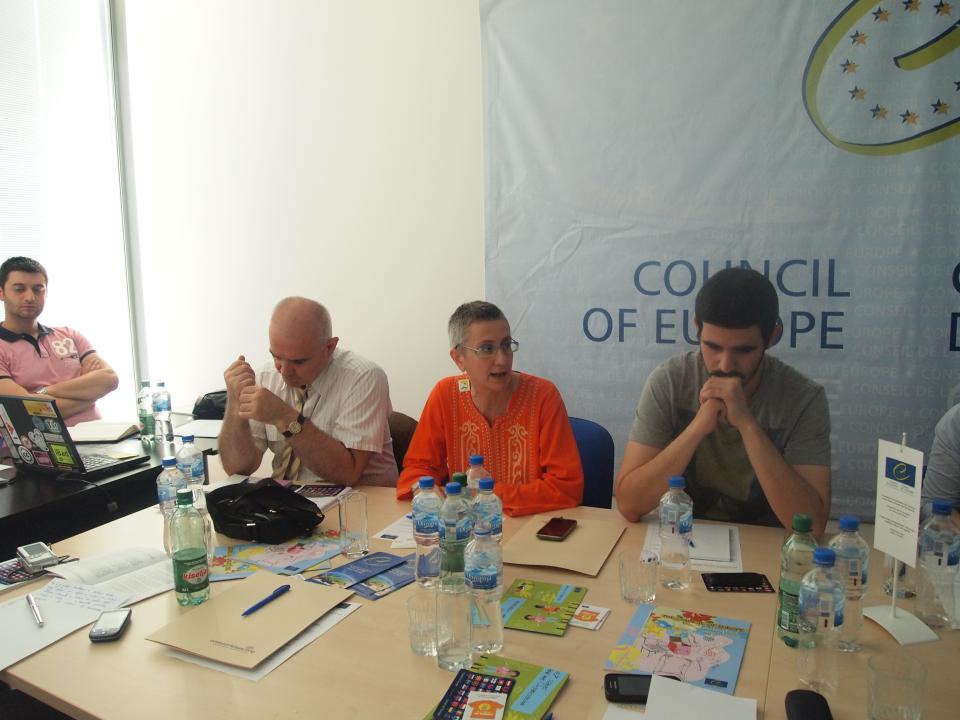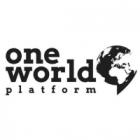
From the EuroDIG 2013 (European Dialogue on Internet Governance) at the Council of Europe in Sarajevo on 21 June 2013, a platform for remote participation from Lisbon was organised by Foundation OneWorldSEE (owpsee) in cooperation with the Office of the Council of Europe. In attendance were stakeholders involved in the issue of female and male participants in internet governance (IG) in Bosnia and Herzegovina (BiH). This year’s conference theme was “Cross-border hate speech and defamation – living together online.”
Hate speech is commonly defined as any communication that disparages a person or group on the basis of certain characteristic such as race, color, ethnic or national origin, sex, sexual orientation, religion and other characteristics. The executive directress of owpsee, Valentina Pellizzer, said that big companies such as Facebook and Google have set their own rules and thus assume the role of the state. They also make decisions about what is appropriate and what is not. “This is not their job and therefore we need to talk about it,” Pellizzer said.
Female and male actors in this workshop were convinced that the internet must remain free and open, but also must raise awareness among all stakeholders and internet users regarding the limits of free speech, especially on the internet. Also, it is necessary to work on the ethics of female and male internet users.
“Society doesn’t need censorship, but standards which will define where the abuse of freedom of speech and hate speech begins,” said a participant in Sarajevo.
“With increasing of penetration of the internet in BiH online media started to flourish too”, said Stefan Pejović from the media sector of the Council of Europe office in Sarajevo, adding that the hate speech, also found its place in online media. “It must be free and open,” said Pejovic. He also said that hate speech is not free speech.
Stefan Pejović believes that the internet is a platform for freedom, “but media code of ethics must be maintained and strengthened, especially in the era of the various scandals of privacy, which actually showed the power of freedom, but also their dark side, or the abuse of that freedom.”
In BiH, hate speech is present in the media, especially in the online forums of information portals on topics such as sports, culture and politics. There are some portals that are registered outside the country and there is noticeable “transboundary hate speech,” outlined Nebojša Regoje from the Office of Public Relations of the Ministry of Foreign Affairs.
Hate speech in HiB is defined by recent war. Nationalistic comments dominate and hate speech is effectively directed towards everything and everybody that are somehow different from the dominant culture.
We are aware that sexism is present in online spaces. We are aware that sexist content such as comments, websites and online communities exist and flourish in social networks. However, what is missing is an awareness of a fictional thin line that distinguishes between sexism and hate speech.
The same social networks that serve as platforms for dialogue, exchange of ideas and positive campaigns are at the same time places with a high degree of hate speech. With their global and transnational nature, these platforms serve as the main accelerators of this content througout the world. The fact that gender-based violence is not explicitly defined as hate speech creates additional problems and requires continuous engagement from activists.
The Council of Europe Committee of Ministers’ recommendation defines hate speech as: “all forms of expression which spread, incite, promote or justify racial hatred, xenophobia, anti- Semitism or other forms of hatred based on intolerance, including: intolerance expressed by aggressive nationalism and ethnocentrism, discrimination and hostility against minorities, migrants and people of immigrant origin.” (1) It is important to remark that gender is not mentioned explicitly as one of the risk factors for discrimination and hostility. Women, comprising more than half of the world’s population, are not represented under the category of minorities.
In contrast, feminist Dona Lilian argues that: “sexist speech can be framed as hate speech, as it functions to denigrate women as a group, in the service, ultimately, of patriarchal subjugation. Therefore, no matter how unsophisticated it may seem to talk simplistically about ‘women’ and ‘men’, the world we live in is still organized around those categories. Moreover, it is organized in such a way that ‘women’ as a class are subordinate to ‘men’ as a class, and it systemically discriminates against women.” (2)
Gender stereotypes are based on dominant forms of content produced and shared and are supported by man and women equally. It is known that Facebook has two faces. On one side, any images of breastfeeding mothers are censored even if they are unreported, and on the other, pages, comments or communities that publicly support gender-based violence, specifically violence against girls and women, are rarely removed even if they have been reported by users numerous times. In May 2013 more than 100 women organisation’s launched an online campaign #fbrape. After 60,000 tweets, 5,000 emails and seven days of an intense online campaign did Facebook agree to revise its terms of use as well as hire experts from the field of women’s rights to tackle questions of gender-based violence.
Read more about the End violence: Women’s rights and safety online project
Footnotes
- 10068 views






Add new comment